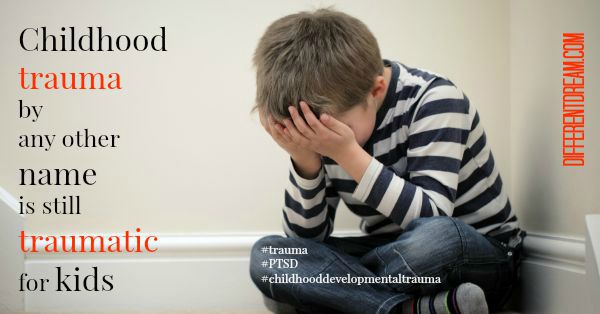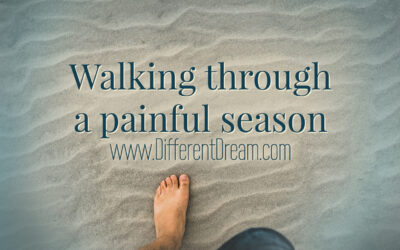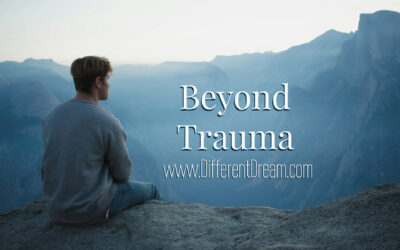Childhood Trauma, by Any Other Name, Is Still Traumatic

As was mentioned in the first post in this series, my first acquaintance with post-traumatic stress disorder (PTSD) in children was not intentional. Rather, I stumbled into the world of childhood trauma in 2008 after our son was diagnosed with and treated for his PTSD, the result of repeated, invasive medical trauma that began shortly after birth and continued until he was five.
At the clinic where our 26-year-old son was treated, the therapists devote a considerable amount of time to educating the family members and caregivers of their clients about the condition. The basic information they presented piqued my curiosity so much that, once our son completed his therapy, I began my own research about PTSD in children. That research eventually resulted in a book, Does My Child Have PTSD? What to Do When Your Child Is Hurting from the Inside Out (Familius, October 2015).
Between the initial research and the writing of the book, however, I spent a considerable amount of time swimming in a sea of confusion. Confusion caused by diving into the waters of the relatively new field of study–PTSD in children–where the professional jargon about it seemed to constantly changing. The water teemed with a dizzying array terms such as “trauma,” “PTSD,” “childhood trauma,” and “childhood developmental trauma.” Eventually I created three questions and answers to assist parents like me–and perhaps like you–who want to better understand children who live with trauma.
What Is Trauma?
Dr. Peter A. Levine and Maggie Kline, authors of Trauma-Proofing Your Kids: A Parents’ Guide for Instilling Confidence, Joy and Resilience, describe trauma as an intense experience that suddenly overwhelms a child. In other words, trauma is an event that shocks children and overwhelms them. It takes away their sense of security and control. Without treatment, the “feeling of overwhelm” affects the rest of the child’s life and experiences.
To read the rest of this post, please visit the Key Ministry blog at AChurch4EveryChild.
Part 1: Writing About PTSD Was Not on My Bucket List
Part 2: Childhood Trauma by Any Other Name Is Still Traumatic
Part 3: 10 Myths about PTSD in Children
Part 4: What Causes PTSD in Children
Part 5: A Look Inside the Brain’s Response to Childhood Trauma
Part 6: Why the Spotlight Is on PTSD in Children
Part 7: Childhood PTSD Symptoms in Tots, Teens, and In Between
Part 8: Why and How Childhood PTSD Is often Misdiagnosed
Part 9: Effective Treatment of PTSD in Children
Part 10: How to Prevent PTSD in Traumatized Children
Part 11: How Parents Can Advocate Effectively for Traumatized Children
Part 12: 4 Reasons Traumatized Kids Need Mentally Healthy Parents
Part 13: Clinging to Faith While Parenting Children with PTSD
Do you like what you see at DifferentDream.com? You can receive more great content by subscribing to the quarterly Different Dream newsletter and signing up for the daily RSS feed delivered to your email inbox. You can sign up for the first in the pop up box and the second at the bottom of this page.
By Jolene
Jolene Philo is the author of the Different Dream series for parents of kids with special needs. She speaks at parenting and special needs conferences around the country. She’s also the creator and host of the Different Dream website. Sharing Love Abundantly With Special Needs Families: The 5 Love Languages® for Parents Raising Children with Disabilities, which she co-authored with Dr. Gary Chapman, was released in August of 2019 and is available at local bookstores, their bookstore website, and at Amazon.
1 Comment
Submit a Comment
Subscribe for Updates from Jolene
Related Posts
How Do I Let Go of My Adult EA/TEF Child?
Valeria Conshafter explores the question “How do I let go of my adult EA/TEF child?” for EA/TEF Awareness Month.
The Physical Manifestations of Grief in Caregivers
Jolene explains how the heaviness of loss and sorrow can contribute to the physical manifestations of grief in caregivers.
Experiencing Post-Traumatic Growth while Raising a Child with Disabilities
Jolene explains the benefits of experiencing post-traumatic growth while raising a child with disabilities.






Funny you should mention the definition of trauma! I hear that word so often, but I’ve never actually looked up what it really is. I’ll be checking out your links! Thanks for the info.